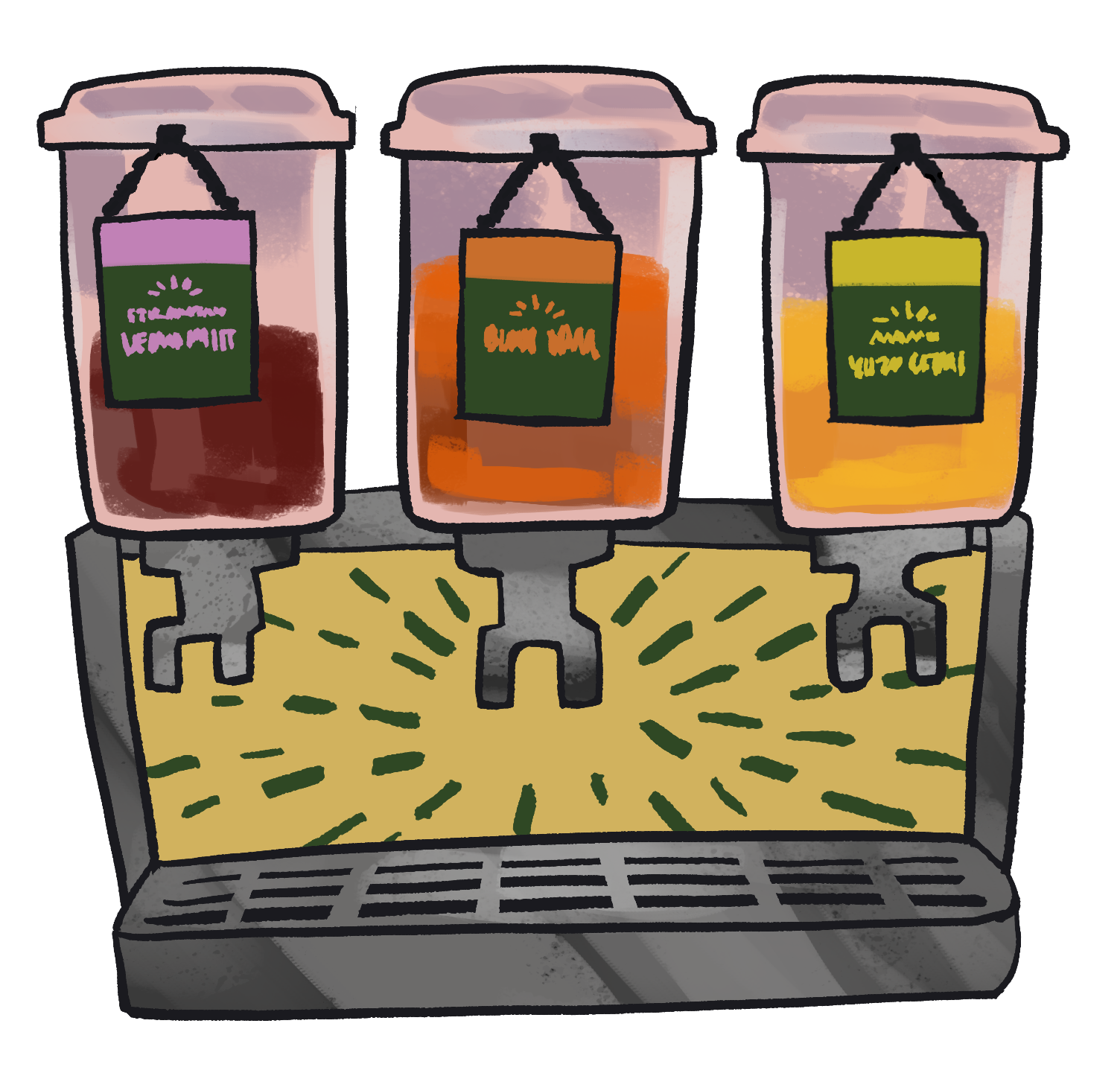The infamous Panera Charged Lemonade: three flavors of a sugary, colorful and caffeinated beverage lie at the bottom of the three separate lawsuits and a slew of public backlash Panera Bread currently faces. Social media platforms like TikTok have been abuzz with warnings about the seemingly innocuous drink’s dangerous contents: an extremely high caffeine level which, according to lawsuits, has caused the death of two people, earning it the title of “Panera’s deadly lemonade” across the internet.
The Panera Charged Lemonade lawsuits and the surrounding controversy act as a cautionary tale: one that exposes a need for improved regulation of disclosure of nutritional information, especially when the items being served have the potential to be fatal.
Plaintiffs filed the first wrongful-death lawsuit in October of 2022, after the death of their 21-year-old daughter Sarah Katz, who collapsed and went into cardiac arrest as a result of consuming the high caffeine content of the Charged Lemonade, the lawsuit claims. Katz had a long-standing heart condition called long-QT syndrome, which caused her to avoid caffeinated beverages and energy drinks. However, plaintiffs argued that the drink was improperly labeled, with no warning that the beverage was an energy drink containing an excessive amount of caffeine.
Since its release in April of 2022, the charged Lemonade has been advertised as a ‘clean’ and ‘plant-based’ drink and included no warning on the drink itself about its caffeine content, as other energy drink manufacturers are required to do. On the Panera website, there was also no mention of the extremely high amount of caffeine, as the drink was only said to have “about as much caffeine as [Panera’s] Dark Roast Coffee.” In reality, one large cup of the drink, which also happened to come with an offer of unlimited refills, contains over 390 milligrams of caffeine — more than both a Redbull and Monster Energy drink combined.
Only in October of 2023, after the first lawsuit was filed, did the company begin to release warning labels and discontinue the self-service of the lemonade at Panera locations. Companies like Panera do not feel compelled to add these warnings until serious consequences arise: consequences that could easily be prevented in the future. Panera explained its abrupt action by saying that this only “enhanced [their] existing caffeine disclosure for these beverages.”
Restaurants like Panera are not required by law to provide information about caffeine content in their food or beverages, presenting a serious issue that in some cases can be life-threatening. Not only is caffeine not a required disclosure, but, as yet, many restaurants in the United States are not required by state law to even provide written allergen information on their menus, despite the FDA’s 2022 Food Code.
Instead, restaurants rely on the consumer to ask about allergen information. This can be detrimental to the health of certain customers and put some at risk of serious health complications. “I have allergies and I would definitely always read the label before eating something, but in restaurants, if it’s not a type of cuisine that I would expect to have complications with, I usually won’t ask them about it,” sophomore Sophie Zheng said.
As a result, some argue that the responsibility for the Panera Charged Lemonade debacle falls largely on the shoulders of the customers. And it’s true: consumers who are aware of their health conditions must be proactive and ask about the food that they consume for their own protection. “Consumers should still have some kind of responsibility,” freshman Anita Wei said.
However, even with a degree of consumer involvement, restaurants still have a responsibility to disclose clear information about the food that they serve, whether they are forced to by regulations, or are compelled by the human decency of maintaining other people’s safety. “I think most people when they walk into Panera, they don’t expect to like, have to go up and ask if this Panera charged lemonade is gonna give them, like, heart failure or something,” Zheng said.
To avoid the jeopardization of customer health, more comprehensive restaurant regulations need to be put in place. “It’s really important to have food regulations and clear labeling,” Wei said.
While regulations for providing written disclosure on calories in food served by restaurant chains do exist, many other substances, such as caffeine or sugar, are not required to be disclosed. This can have serious consequences for people with or even without health complications, as unhealthy eating habits have the propensity to detrimentally impact overall health.
The deaths of customers should signal the criticality of comprehensive regulatory practices. The consequences that exist without proper protection of consumers in this way are severe.
If you would like to voice your opinion on an issue you feel is relevant to our community, please do so here. Anyone is able and welcome to submit a Letter to the Editor, regardless of journalistic experience or writing skills. Submissions may be published either online or in a print issue.








